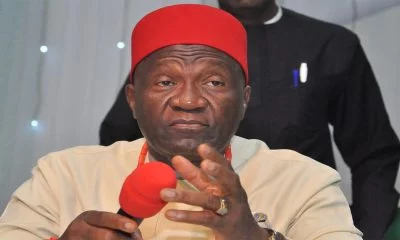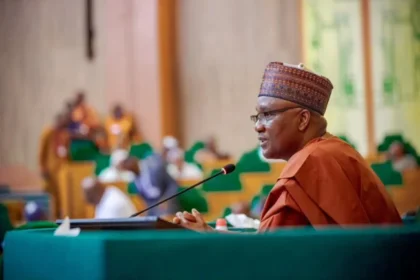Former President-General of Ohanaeze Ndigbo, Chief Nnia Nwodo, has issued a stark warning that Nigeria may face disintegration if it fails to embrace restructuring before the 2027 general election.
Speaking at a public presentation of two books authored by veteran journalist Ike Abonye in Abuja, Nwodo said the country must urgently return to true federalism to ensure its survival. He argued that each federating unit should have control over its natural resources while paying royalties or taxes to the central government for core national functions such as defence, foreign affairs, and immigration.
“Nigeria must restructure and give its component units sovereignty over their natural resources,” Nwodo stated in his keynote address titled How Did We Get Here? “These irreducible minimum conditions are non-negotiable. If they do not happen, we will have no alternative but to go our separate ways.”
The former Minister of Information emphasized that Nigeria’s current structure stifles development and fuels inefficiencies. He called for state-controlled policing, investment in digital literacy, and a renewed focus on education and agriculture to reduce the country’s dependency on oil.
Nwodo painted a grim picture of Nigeria’s socio-economic reality, citing United Nations data that puts the country’s life expectancy at just 54.8 years—one of the lowest in the world. He also referenced a 2022 World Bank report estimating that Nigeria loses $1 billion annually due to poor road infrastructure.
“How can a country battling rising inflation and a shrinking capital budget afford that?” he asked, noting that over 90% of goods and people in Nigeria depend on road transport, and nearly 40% of agricultural produce is lost before reaching consumers due to bad roads.
He warned that Nigeria’s growing debt burden, which reached $94 billion by December 2024, is projected to climb to N183 trillion following new borrowing plans under President Bola Tinubu’s administration.
Nwodo’s comments come amid ongoing debates over Nigeria’s political structure, regional autonomy, and mounting calls from various stakeholders for reforms that reflect equity, efficiency, and sustainability in governance.





